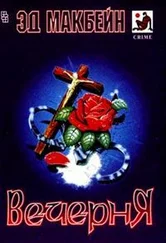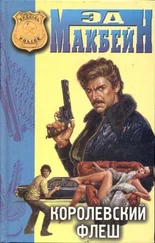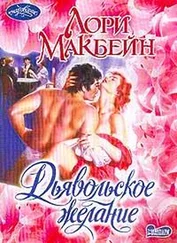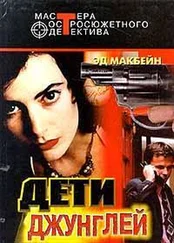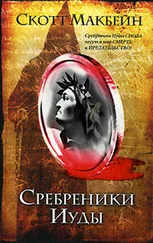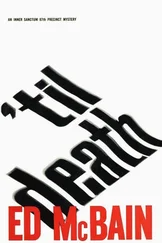“With an i and an s,” Tina said. “C-a-r-l-i-s-l-e.”
“And you said your producer’s—”
“Allan Carter. Two l ’s and an a.”
“Who’s your company manager?”
“Danny Epstein.”
“And your general manager?”
“Lew Eberhart.”
“Anybody else we should know about?” Carella asked.
Tina shrugged. “The stage managers? We’ve got three of them.” She shrugged again. “I mean, there are thirty-eight people in the cast alone, and God knows how many musicians and electricians and carpenters and property men and—”
“Any of them Hispanic?”
“In the crew, do you mean? I guess so. I don’t know too many of them. Except to pass them by in my underwear.”
She smiled suddenly and radiantly, and then seemed to remember what they were talking about here. The smile dropped from her face.
“How about the cast? Any Hispanics in the cast?” Carella asked.
“Two of the gypsies,” Tina said.
“Could we have their names, please?” Meyer said.
“Tony Asensio and Mike Roldan. Roldan doesn’t sound like a Spanish name, but it is. Actually, it’s Miguel Roldan.”
“Was Sally particularly friendly with either of them?”
“The gypsies in a show get to know each other pretty well,” Tina said.
“How well did she know these two men?” Carella asked.
“Same as the rest of us,” Tina said, and shrugged.
“Did she ever date either of them?”
“They’re both faggots,” Tina said. “In fact, they’re living together.” As though talk of the show had suddenly reminded her of the afternoon performance, she looked swiftly at her watch. “Oh, my God,” she said, “I’ve got to get out of here, I’ll be late!” And suddenly a look of self-chastisement crossed her face, and it appeared as if she would burst into tears again. “The show must go on, huh?” she said bitterly, shaking her head. “I’m worrying about the goddamn show, and Sally’s dead.”
From where the two patrolmen sat in the patrol car parked at the curb, it seemed evident that the priest was winning the fight. They had no desire to get out of the car and break up the fight, not with it being so cold out there, and especially since the priest seemed to be winning. Besides, they were sort of enjoying the way the priest was mopping up the street with his little spic opponent.
Up here in the Eight-Seven, you sometimes couldn’t tell the spics (Hispanics, you were supposed to say in your reports) from the whites because some of them had high Spanish blood in them and looked the same as your ordinary citizen. For all the patrolmen knew, the priest was a spic, too, but he had a very white complexion, and he was bigger than most of the cockroach-kickers up here. The two patrolmen sat in the heated comfort of the car and guessed aloud that he was maybe six three, six four, something like that, maybe weighing in at 240 pounds or thereabouts. They couldn’t figure which church he belonged to. None of the neighborhood churches had priests who dressed the way this one was dressed, but maybe he was visiting from someplace in California — they dressed that way in California, didn’t they, at those missions they had out there in the Napa Valley? The priest was wearing a brown woolen robe, and his head was shaved like a monk’s head, its bald crown glistening above the tonsure that encircled it like a wreath. One of the patrolmen in the car asked the other one what you called that brown thing the priest was wearing, that thing like a dress, you know? The other patrolman told him it was called a hassock, stupid, and the first patrolman said, “Oh yeah, right.” They were both rookies who had been working out of the Eight-Seven for only the past two weeks, otherwise they’d have known that the priest wasn’t a priest at all, even though he was known in the precinct as Brother Anthony.
Clearly, Brother Anthony was in fact beating the man to a pulp. The man was a little Puerto Rican pool shark who’d made the enormous mistake of trying to hustle him. Brother Anthony had dragged the little punk out of the pool hall and first had picked him up and hurled him against the brick wall of the tenement next door, just to stun him, you know, and then had swung a pool cue at his kneecaps, hoping to break them but breaking only the pool cue instead, and was now battering him senseless with his hamlike fists as the two patrolmen watched from the snug comfort of the patrol car. Brother Anthony weighed a lot, but he had lifted weights in prison, and there wasn’t an ounce of fat on his body. He sometimes asked people to hit him as hard as they could in the belly, and laughed with pleasure whenever anyone told him how hard and strong he was. All year round, even in the hot summer months, he wore the brown woolen cassock. During the summer months, he wore nothing at all under it. He would lift the hem of the cassock and show his sandals to the neighborhood hookers. “See?” he would say. “That’s all I got on under this thing.” The hookers would oooh and ahhh and try to lift the cassock higher, making believe they didn’t think he was really naked under it. Brother Anthony was very graceful for such a big man; he would laugh and dance away from them, dance away.
In the winter, he wore army combat boots instead of the sandals. He was using those boots now to stomp the little Puerto Rican pool hustler into the icy sidewalk. In the patrol car, the two cops debated whether they should get out and break this thing up before the little spic got his brains squashed all over the sidewalk. They were spared having to make any decision because their radio erupted with a 1010, and they radioed back that they were rolling on it. They pulled away from the curb just as Brother Anthony leaned over the prostrate and unconscious hustler to take his wallet from his pocket. Only $10 of the money in that wallet had been hustled from Brother Anthony, but he figured he might as well take all of it because of all the trouble the little punk had put him to. He was cleaning out the wallet when Emma came around the corner.
Emma was known in the neighborhood as the Fat Lady, and most of the people in the precinct tried to steer very clear of her because she was known to possess a short temper and a straight-edge razor. She carried the razor in her shoulder bag, hanging from the left shoulder, so that she could reach in there with her right hand, and whip open the razor in a flash, and lop off any dude’s ear, or slash his face or his hands, or sometimes go for the money, open the man’s windpipe and his jugular with one and the same stroke. Nobody liked to mess with the Fat Lady, which was perhaps why the crowd began to disperse the moment she came around the corner. On the other hand, the crowd might have dispersed anyway, now that the action had ended; nobody liked to stand around doing nothing on a cold day, especially in this neighborhood, where somehow it always seemed colder than anyplace else in the city. This neighborhood could have been Moscow. The park bordering this neighborhood could have been Gorky Park. Maybe it was. Or vice versa.
“Hello, bro,” the Fat Lady said.
“Hello, Emma,” he said, looking up from where he was crouched over the unconscious hustler. He had stomped the man real good. A thin trickle of blood was beginning to congeal on the ice beneath the stupid punk’s head. His face looked very blue. Brother Anthony tossed the empty wallet over his shoulder, stood up to his full height, and tucked the $500-odd into the pouchlike pocket at the front of the cassock. He began walking, and Emma fell into step beside him.
Emma was perhaps thirty-two or thirty-three years old, in any event a good six or seven years older than Brother Anthony. Her full name was Emma Forbes, which had been her name when she was still married to a black man named Jimmy Forbes, since deceased, the unfortunate victim of a shoot-out in a bank he’d been trying to hold up. The man who’d shot and killed Emma’s husband was a bank guard who’d been sixty-three years old at the time, a retired patrolman out of the 28th Precinct downtown. He’d never lived to be sixty- four because Emma sought him out a month after her husband’s funeral, and slit his throat from ear to ear one fine April night when the forsythias were just starting to bud. Emma did not like people who deprived her or her loved ones of anything they wanted or needed. Emma was fond of saying, “The opera ain’t over till the fat lady sings,” an expression she used to justify her frequent vengeful attacks. It was uncertain whether the expression had preceded the nickname, or vice versa. When someone was five feet six inches tall and weighed 170 pounds, it was reasonable to expect — especially in this neighborhood, where street names were as common as legal names — that sooner or later someone would begin calling her the Fat Lady, even without having heard her operatic reference.
Читать дальше


